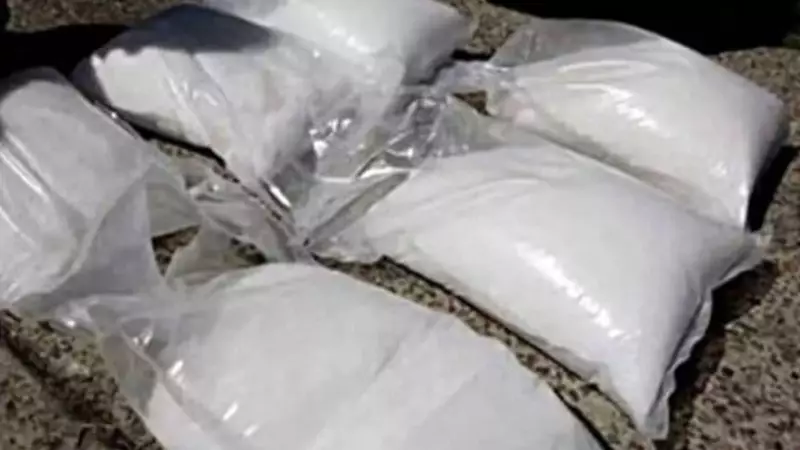
The Special Cell of Delhi Police has exposed a sophisticated international drug trafficking network operated by African cartels that has triggered an unprecedented surge in MDMA and methamphetamine availability across the national capital. Over recent months, law enforcement agencies have made multiple high-value seizures totaling hundreds of crores and arrested numerous individuals from Nigeria and Côte d'Ivoire involved in this cross-continental narcotics operation.
Major Busts and Key Arrests
In a significant breakthrough on November 1, 2025, authorities apprehended African national Ezebuenyi Esther Osita, also known as Ella, at Dhaula Kuan with a red trolley bag containing 17 kg of methamphetamine and 700 opioid tablets. This arrest proved crucial as it led investigators to several other operatives within the alleged cartel.
Earlier, in August, the Crime Branch captured a London-educated Nigerian healthcare professional named Lola, identified as the sixth member of a Nigerian drug syndicate operating in Delhi. Her arrest followed the July capture of five other cartel members from whom police confiscated 100 kg of MDMA, commonly known as molly or ecstasy.
Additional Commissioner of Police (Crime) Mangesh Kashyap revealed that those arrested in July—Kameni Philipp, Adore, Victor, Kelechi Chikwe, and an individual called 'Tall Guy'—were allegedly working for cross-continental drug kingpin Callistus, alias Kallis, who operates from Nigeria and specializes in MDMA and cocaine distribution.
Changing Drug Landscape in Delhi
Police data reveals a dramatic shift in Delhi's drug market dynamics. Last year, authorities seized 9.12 kilograms of heroin from African gangs compared to only 135.11 grams of MDMA. This year, until August, the pattern has reversed dramatically with 9.65 kg of MDMA confiscated from African-origin peddlers versus just 993 grams of heroin.
Over the last three months alone, Delhi Police has seized at least Rs 200 crore worth of methamphetamine, a chemical cousin of MDMA that produces different effects on users. Law enforcement officers attribute MDMA's recent popularity to sophisticated "mixing" processes conducted in hidden "kitchens" where specific chemicals are combined with MDMA to create uniquely potent and addictive formulas.
"The purpose of mixing isn't just cost-cutting. An MDMA addict will buy from any cartel, but if they're hooked to a specific chemical mix, they won't experience the same high from another cartel's product because the formula differs," explained a police officer involved in the investigations.
International Routes and Modus Operandi
According to police documentation, 22 people from African nations were arrested in 2024 for narcotics-related offenses including processing and smuggling operations. This year, until August, 20 individuals had already been apprehended.
Senior police officials cite poverty in many African countries as a driving factor behind recruitment into drug cartels, many of which have South American origins. However, they note certain "unique" advantages that many African nationals possess facilitate their involvement in international trafficking.
"Typically, the accused have multiple relatives across various African countries. A person might have a father from Nigeria and mother from Ivory Coast, enabling them to procure passports from multiple nations. They can re-enter India by changing names even after deportation," detailed one officer.
The misuse of medical visas has emerged as a significant concern. "They may arrive on medical visas and overstay after visa expiration. Many landlords who accommodate them don't verify visa validity after initial checks, and police verification remains rare," the officer added.
High-Tech Anonymity and Global Supply Chains
Another officer from Delhi Police Crime Branch highlighted how traffickers utilize end-to-end encrypted mobile applications and foreign mobile numbers to conceal their identities. "They use different numbers for client orders and for contacting operators in Nigeria or Dubai. All are foreign numbers," the officer stated.
Investigations reveal that pure methamphetamine, typically sourced from cartels in Colombia and Peru, reaches India through Middle Eastern transit routes. The syndicates sometimes recruit women of Indian origin who travel with narcotics packets taped to their bodies.
"Consignments are dropped at locations like Metro stations, and delivery personnel wear helmets to ensure clients cannot identify suppliers and vice versa," explained an officer, detailing the elaborate measures taken to maintain operational security.
The emerging pattern indicates a sophisticated, globally-connected narcotics operation that has firmly established itself in Delhi, leveraging international routes, technological anonymity, and systemic vulnerabilities to fuel the city's growing MDMA and methamphetamine crisis.





